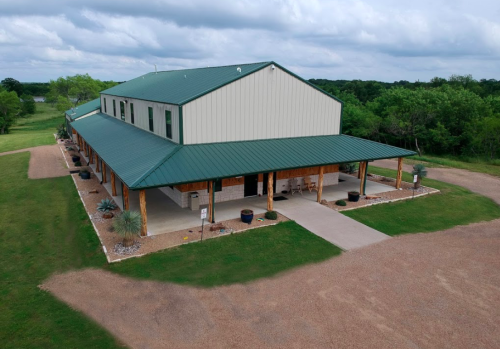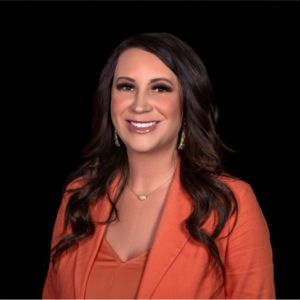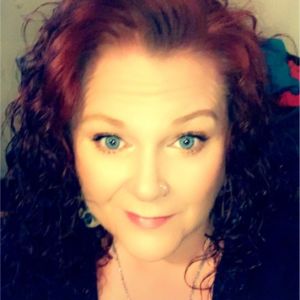






Texas Recovery Centers
Verified Center
This provider's information has been quality-checked by Recovery.com's Research Team for accuracy and completeness, including center verification through appropriate third-party organizations.
Treatment Focus
This center treats substance use disorders and co-occurring mental health conditions. Your treatment plan addresses each condition at once with personalized, compassionate care for comprehensive healing.
Primary Level of Care
Offering intensive care with 24/7 monitoring, residential treatment is typically 30 days and can cover multiple levels of care. Length can range from 14 to 90 days typically.
Treatment Focus
This center treats substance use disorders and co-occurring mental health conditions. Your treatment plan addresses each condition at once with personalized, compassionate care for comprehensive healing.
Primary Level of Care
Offering intensive care with 24/7 monitoring, residential treatment is typically 30 days and can cover multiple levels of care. Length can range from 14 to 90 days typically.
Provider's Policy
If you do not see your insurance provider here, it does not mean that you do not have options. If your insurance provider is out-of-network, treatment may still be affordable. We are also constantly working on expanding our network of insurance providers, and this list may not be up to date. Fill out our insurance verification form below or contact us today to confirm if your insurance covers treatment.
Texas Recovery Centers
Texas Recovery Centers
About Texas Recovery Centers
On a quiet and charming ranch-style facility, Texas Recovery Centers offers evidence-based dual-diagnosis treatment for individuals with substance use disorders. The center’s setting features natural landscapes that promote a calming atmosphere, ideal for introspection and healing. Born out of the desire to provide a safe refuge for healing and recovery, they offer comprehensive options including medical detox, residential treatment, and day treatment (partial hospitalization programs). Their treatment options include customized tracks for different groups such as men, women, veterans, professionals, and the LGBTQ+ community.
Alcohol and Drug Treatment in Texas
Texas Recovery’s beautiful sprawling campus allows clients to disconnect from the stress of everyday life. Clients can have the space to focus on recovery and begin their healing journey. Texas Recovery Centers takes a holistic approach to drug and alcohol detox by providing medical, clinical and emotional support during the process. During residential treatment, clients learn more about the underlying causes of addiction, forge supportive relationships with peers and staff, and enjoy the amenities that the ranch provides. Clients can transition to day treatment to receive structured treatment during the day and then return home at night.
Research-Based Treatment Approach
Dual diagnosis treatment at Texas Recovery is as unique as each client. The clinical therapists and counselors collaborate to personalize therapies to each client. Clients can expect to work one-on-one with a therapist to explore their thoughts, behaviors, and emotions. Because addiction and mental health disorders can take a toll on family relationships, Texas Recovery offers family therapy to help rebuild trust and create strong bonds. Counselors use motivational interviewing, cognitive behavioral therapy (CBT), and dialectical behavior therapy (DBT). These therapies are key to strengthening motivation to change, recognizing triggers, and developing skills to maintain a sober lifestyle. When appropriate, Texas Recovery provides Suboxone for clients recovering from opioid addiction to complement the evidence-based treatment.
Integrative Healing Techniques
Texas Recovery addresses all aspects of their clients’ well-being. They offer daily opportunities for patients to practice yoga, tai chi, and meditation. Equine therapy gives clients the opportunity to groom, feed and exercise the horse, which in turn can provide empowerment, self-confidence, and reduce stress. Recovery support groups provide peer interaction, accountability, and spiritual support. Texas Recovery offers 12-Step groups and Celebrate Recovery meetings for Christians.
Highlights from the Center
Highlights
These highlights are provided by and paid for by the center.
Equine Therapy
Co-Occurring Disorders Treatment
Perfect for Professionals
Medically Assisted Detox
Center Overview
Treatment Focus
This center treats substance use disorders and co-occurring mental health conditions. Your treatment plan addresses each condition at once with personalized, compassionate care for comprehensive healing.
Insurance Accepted
Cash Pay Rates
Estimated Cash Pay Rate
Center pricing can vary based on program and length of stay. Contact the center for more information. Recovery.com strives for price transparency so you can make an informed decision.
Meet Your Care Team

Karen Reeves
Clinical Liaison
LCDC

Shon Tripp
Executive Chef

Noel (Ru) Lorusso
Drug and Alcohol Counselor

Deidra Alexander
Therapist
LMSW

Alexandria Anderson
Registered Dietitian Nutritionist
MS, RD, LDN

Brooke Walker
Senior Account Executive and Veterans Outreach

Kyla Begay
Counselor
MS, LCDC

Tracey Boles
Senior Case Manager

Karla Sikes
Lead Counselor

Mariah Capler
Assistant Director of Nursing
BSN-RN




Levels of Care







Your Care Options
Specializations
Alcohol
Using alcohol as a coping mechanism, or drinking excessively throughout the week, signals an alcohol use disorder.
Co-Occurring Disorders
A person with multiple mental health diagnoses, such as addiction and depression, has co-occurring disorders also called dual diagnosis.
Drug Addiction
Drug addiction is the excessive and repetitive use of substances, despite harmful consequences to a person's life, health, and relationships.
Equine Therapy
Guided interactions with trained horses, their handler, and a therapist can help patients improve their self-esteem, trust, empathy, and social skills.
Medication-Assisted Treatment
Combined with behavioral therapy, prescribed medications can enhance treatment by relieving withdrawal symptoms and focus patients on their recovery.
Professionals
Busy, high-ranking professionals get the personalized treatment they need with greater accommodations for work, privacy, and outside communication.
Veterans
Patients who completed active military duty receive specialized treatment focused on trauma, grief, loss, and finding a new work-life balance.
First Responders Program
Paramedics, police officers, firefighters, and others join in a specific First Responders program, usually focused on trauma, grief, and work-life balance.
Who We Treat
LGBTQ+
Addiction and mental illnesses in the LGBTQ+ community must be treated with an affirming, safe, and relevant approach, which many centers provide.
Professionals
Busy, high-ranking professionals get the personalized treatment they need with greater accommodations for work, privacy, and outside communication.
Veterans
Patients who completed active military duty receive specialized treatment focused on trauma, grief, loss, and finding a new work-life balance.
Women only
Women attend treatment in a gender-specific facility, with treatment delivered in a safe, nourishing, and supportive environment for greater comfort.
Approaches
Evidence-Based
A combination of scientifically rooted therapies and treatments make up evidence-based care, defined by their measured and proven results.
Holistic
A non-medicinal, wellness-focused approach that aims to align the mind, body, and spirit for deep and lasting healing.
Strengths-Based
Providers using a strengths-based philosophy focus on the positive traits of their patients, creating a positive feedback loop that grows confidence.
Strengths-Based
Providers using a strengths-based philosophy focus on the positive traits of their patients, creating a positive feedback loop that grows confidence.
Twelve Step
Incorporating spirituality, community, and responsibility, 12-Step philosophies prioritize the guidance of a Higher Power and a continuation of 12-Step practices.
Therapies
1-on-1 Counseling
Patient and therapist meet 1-on-1 to work through difficult emotions and behavioral challenges in a personal, private setting.
Meditation & Mindfulness
A practiced state of mind that brings patients to the present. It allows them to become fully aware of themselves, their feelings, and the present moment.
Trauma-Specific Therapy
This form of talk therapy addresses any childhood trauma at the root of a patient's current diagnosis.
Mindfulness Therapy
This ancient practice can be mental, emotional, and even spiritual. In meditation, you focus your attention on the present moment without judgement.
Adventure Therapy
This experiential approach uses the physical and emotional challenges of outdoor activities as tools for personal growth.
Art Therapy
Visual art invites patients to examine the emotions within their work, focusing on the process of creativity and its gentle therapeutic power.
Equine Therapy
Guided interactions with trained horses, their handler, and a therapist can help patients improve their self-esteem, trust, empathy, and social skills.
Experiential Therapy
With this approach, patients heal by doing. Therapists help patients process difficult emotions to speak, using guided activities like art or dance.
Conditions We Treat
Anxiety
Anxiety is a common mental health condition that can include excessive worry, panic attacks, physical tension, and increased blood pressure.
Depression
Symptoms of depression may include fatigue, a sense of numbness, and loss of interest in activities. This condition can range from mild to severe.
Post Traumatic Stress Disorder
PTSD is a long-term mental health issue caused by a disturbing event or events. Symptoms include anxiety, dissociation, flashbacks, and intrusive thoughts.
Stress
Stress is a natural reaction to challenges, and it can even help you adapt. However, chronic stress can cause physical and mental health issues.
Trauma
Some traumatic events are so disturbing that they cause long-term mental health problems. Those ongoing issues can also be referred to as "trauma."
Substances We Treat
Alcohol
Using alcohol as a coping mechanism, or drinking excessively throughout the week, signals an alcohol use disorder.
Benzodiazepines
Benzodiazepines are prescribed to treat anxiety and sleep issues. They are highly habit forming, and their abuse can cause mood changes and poor judgement.
Co-Occurring Disorders
A person with multiple mental health diagnoses, such as addiction and depression, has co-occurring disorders also called dual diagnosis.
Cocaine
Cocaine is a stimulant with euphoric effects. Agitation, muscle ticks, psychosis, and heart issues are common symptoms of cocaine abuse.
Drug Addiction
Drug addiction is the excessive and repetitive use of substances, despite harmful consequences to a person's life, health, and relationships.
Heroin
Heroin is a highly addictive and illegal opioid. It can cause insomnia, collapsed veins, heart issues, and additional mental health issues.
Methamphetamine
Methamphetamine, or meth, increases energy, agitation, and paranoia. Long-term use can result in severe physical and mental health issues.
Opioids
Opioids produce pain-relief and euphoria, which can lead to addiction. This class of drugs includes prescribed medication and the illegal drug heroin.
Languages
Care Designed for Your Needs
Personal Amenities
Amenities
Special Considerations
Center Pets
Addiction and mental health facilities with pets allow patients to interact with friendly dogs, cats, horses, and in some cases, even dolphins.
Gender-specific groups
Patients in gender-specific groups gain the opportunity to discuss challenges unique to their gender in a comfortable, safe setting conducive to healing.
Healthy Meals are provided
Great food meets great treatment, with providers serving healthy meals to restore nutrition, wellbeing, and health.
LGBTQ group
Group therapy unites LGBTQ+ patients in a safe and culturally competent setting, encouraging peer support under the expert leadership of a therapist.
First Responders Program
Paramedics, police officers, firefighters, and others join in a specific First Responders program, usually focused on trauma, grief, and work-life balance.
Activities
Yoga
Yoga is both a physical and spiritual practice. It includes a flow of movement, breathing techniques, and meditation.






